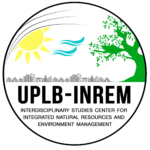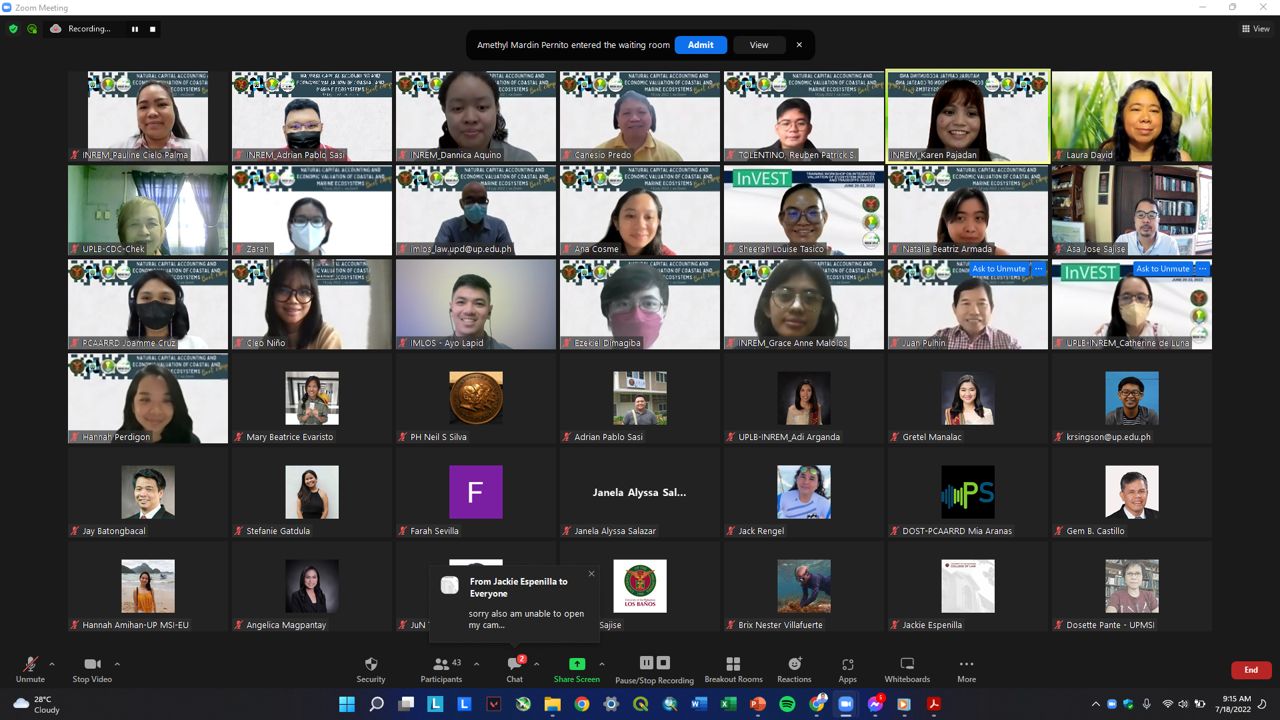Through the DOST PCAARRD-funded project entitled, “Natural Capital Accounting of Coastal and Marine Ecosystems” under the program Resource Inventory, Valuation and Policy in Ecosystem under Threat (Re-INVEST): The Case of the West Philippine Sea, the UPLB Interdisciplinary Studies Center for Integrated Natural Resources and Environment Management hosted a virtual bootcamp on natural capital accounting and economic valuation of coastal and marine ecosystems on July 18, 2022.
The boot camp is a levelling off activity to orient the involved project staff and researchers on the technical aspects relevant to coastal and marine natural capital accounting prerequisite in the implementation of the project. This was participated by researchers from UP Marine Science Institute (MSI) and UP Institute for Maritime Affairs and Law of the Sea (IMLOS), and staff from DOST Philippine Council for Agriculture, Aquatic and Natural Resources Research and Development (PCAARRD).
To commence the activity, Dr. Juan M. Pulhin, Chair of INREM, provided an overview of the project and a briefer of the activity. The aim of the Re-INVEST WPS Project 2 is to develop a national framework for coastal and marine natural capital accounting in the West Philippine Sea (WPS).
Three renowned researchers and professors shared their expertise regarding the crucial discussion on accounting, inventory and valuation. Dr. Gem B. Castillo spoke about natural capital accounting that recognized the environment as an important asset to the development of society and economy. It introduced the management schemes necessary to calculate the stocks and flow of physical and monetary resources from nature.
Thereafter, Dr. Asa Jose U. Sajise gave a lecture on natural capital accounting and economic valuation of coastal and marine ecosystems. This explored the economic viability of the environmental management plans that can potentially support the development project. In the afternoon session, Dr. Canesio D. Predo explored approaches on integrating ecosystem services in natural capital accounts, policies, and environmental decision-making.
The WPS is part of the Exclusive Economic Zone (EEZ) of the Philippines, and the 12% of the annual global fish catch which is worth USD 21.8 billion comes from WPS. Understanding the concepts of natural capital accounting will enable the researchers to execute the project according to the international guidelines and frameworks on marine research. (Pauline Cielo Palma – University Research Associate II, UPLB INREM)

